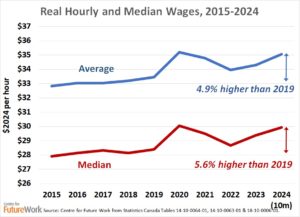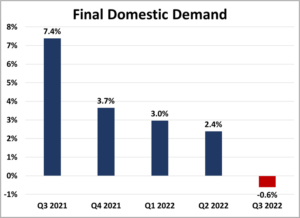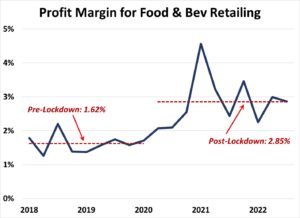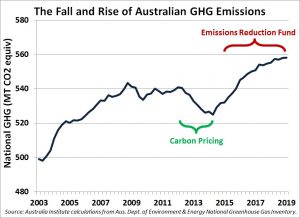There are encouraging signs that Canada’s economy and labour market are improving after a period of stagnation brought about by the Bank of Canada’s aggressive interest rate hikes in 2022 and 2023.
Newly released data for the third quarter of 2024 (July-September) shows the economy has continued to grow, albeit slowly. Consumer spending was the brightest light in the third quarter data: growing at an annualized rate of 3.5% (in real, inflation-adjusted terms), and constituting the largest single source of new demand.
Stronger consumer spending is being supported by continued rapid growth in wages. Average wages are continuing to advance at annual rates of 4-5% (depending on the specific wage measure chosen). Wages remain strong despite the rise in unemployment since 2022 (from
Read More »




